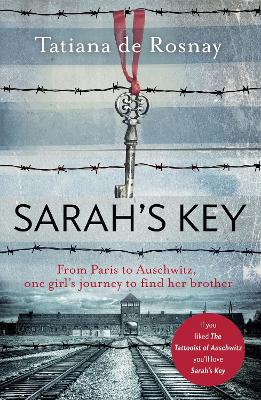Reviewed by ibeforem on
I wasn’t a big fan of Julia. She was fine early on in the book, when we had Sarah’s narration to break hers up. But later in the book a lot of things about her rubbed me the wrong way. I felt like her obsession with Sarah’s story was very over-the-top, despite the connection to her apartment. Her neglect of her pregnancy, in particular, bothered me. I also didn’t like that we only got the bad things about her husband. He is almost never displayed in a good light, when there must have been some good there for her to marry him in the first place.
I also didn’t care for the way the book finished. Not because of how Sarah’s story ended — that actually made a lot of sense — but because of the relationship that Julia forms. It just didn’t fit for me.
Overall, this story is worth reading if you want to learn something about France during the war. But don’t be surprised if Julia kills it for you.
Reading updates
- Started reading
- 14 February, 2013: Finished reading
- 14 February, 2013: Reviewed
